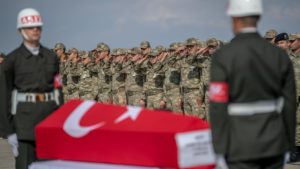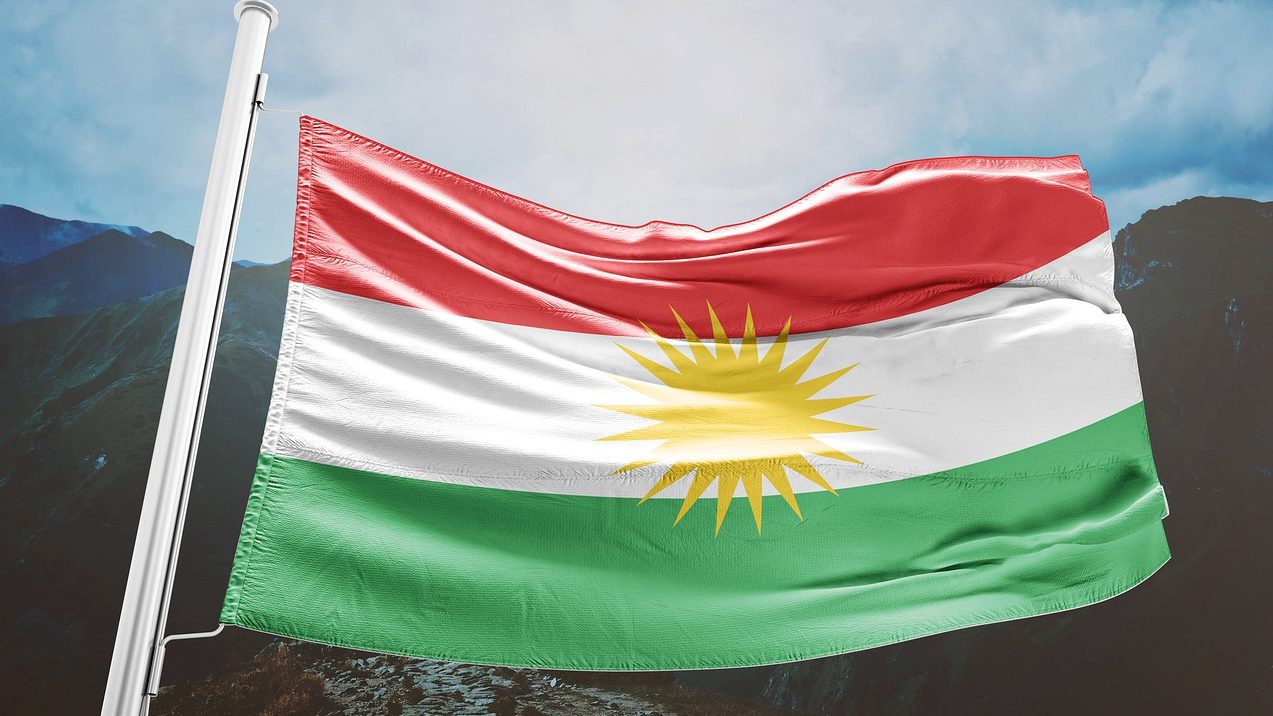Turkey Claims Success in Fresh Offensive Against Kurdish Fighters
Ankara says operation was launched to prevent attacks and protect border
Turkish-made drones are playing an important role in Ankara’s fight against Kurdish fighters in northern Iraq, analysts tell The Media Line, as Turkey proclaims it served a “heavy blow” to the enemy during a fresh offensive.
Turkey’s Defense Ministry said on Monday that it “neutralized” fighters and destroyed ammunition depots, bunkers and tunnels during a ground and air operation launched overnight targeting the Kurdistan Workers’ Party (PKK).
The ministry said that the offensive, called Operation Claw-Lock, was meant to stop terrorist attacks and protect border security.
More than 40,000 people have been killed in Turkey during the PKK’s decades-long insurgency in the mostly Kurdish-populated southeast.
The PKK is labeled a terrorist organization by Turkey, the United States, and the European Union.
Fighting between the military and the PKK intensified after a breakdown in peace talks in 2015, and the government has pushed to target combatants beyond its borders for years.
Ozgur Unluhisarcikli, the Ankara office director for the German Marshall Fund, said such offensives have become annual exercises to push back against Kurdish fighters trying to infiltrate Turkey in the spring from northern Iraq, with the addition of commandos to this year’s attack.
The PKK was able to create a safe haven in northern Iraq but the strategy to target the group there seems to be successful, with fewer attacks and casualties in Turkey and a diminished presence of the PKK in the country, he told The Media Line.
“The PKK finds it more and more difficult to use that area to infiltrate Turkey,” Unluhisarcikli said. “They cannot infiltrate Turkey in large groups any longer.”

Turkish troops attend a ceremony at Sanliurfa Airport in southeastern Turkey on October 22, 2019 to receive the coffin of a soldier killed in Syria. (Bulent Kilic/AFP via Getty Images)
The defense ministry said that its operation was focused on the Iraqi regions of Metina, Zap and Avasin-Basyan.
One tool that has helped Turkey in its offensive has been Turkish-made drones. The drones have also entered the international spotlight during the war in Ukraine, with Kyiv highlighting their role in repelling Russian forces.
Unluhisarcikli said the drones make it much easier for Turkey to find Kurdish fighters and harder for them to move, even in small groups.
Aaron Stein, the director of research for the Philadelphia-based Foreign Policy Research Institute (FPRI), agrees that drones have helped Turkey fight and increased the lethality of its military.
Ankara also has fought against Kurdish combatants in Syria, near its southeastern border, significantly straining relations with the US, which has worked with them in the fight against the Islamic State, or ISIS.
In 2019, then-US President Donald Trump warned Turkey’s President Recep Tayyip Erdogan in a letter not to be a “fool,” in an attempt to stop the Turkish president from launching an offensive against Kurdish forces in northern Syria.
Stein said that Turkey has more flexibility to go after members of armed groups in the Middle East because the attention of Europe and the US is elsewhere on their security interests, with a focus on China and the war in Ukraine.
“I think Europe and the US, in general, have a desire to put the wars in the Middle East behind them,” he said.
However, Stein said the current offensive would likely create some irritation in Washington because Kurdish governing parties would inevitably ask the US for help if civilians die in the fighting.
“But the US effectively has very little leverage over this,” Stein said.
Erdogan met with the prime minister of Iraq’s Kurdish Regional Government (KRG), Masrour Barzani, in Istanbul last week.
Barzani tweeted that the meeting was “productive” and the two leaders discussed increasing trade.
“I think Erdogan must have briefed Barzani and they may have coordinated some activities,” Unluhisarcikli said.
He explained that the Kurdish government is unhappy with the PKK’s presence in northern Iraq because it contravenes its sovereignty and draws the Turkish military to the region.
Stein said the apparent coordination exemplifies the shared hostility the two parties have for the Kurdish fighters, as well as the KRG’s economic reliance on Turkey.
“This is a continuation of the trends that have become overt,” Stein said.


